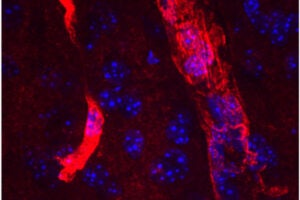From deciphering underlying genetic factors of diseases to developing cutting-edge genome technology, our scientists are making impactful discoveries everyday.
Strength in Genetics and Genomics Research
The Department of Genetics has traditional strengths in computational biology and genome science, as well as model organism, evolutionary and human genetics. Recent specialties include neurological disorders, cellular bioenergetics, epigenomics, personalized medicine and genome technology development.
We have established leadership in the following flagship NIH genomic medicine themed projects:
- The Human Pangenome Project (NHGRI)
- The Impact of Genetic Variation on Function (NHGRI)
- The Long Life Family Study (NIA)
- Somatic Mosaicism across Human Tissues (NIH Common Fund)
- Multi-Omics for Health and Disease (NHGRI, NCI, NIEHS)
- The BRAIN (The Brain Research through Advancing Innovative Neurotechnologies) Initiative Cell Atlas Network (NIMH)
Within the close-knit research community of Washington University School of Medicine, our scientists are supported by a strong foundation. School of Medicine Facts & Figures
| #2 NIH Funding (2023) | $838.3 Million Research Funding 2022 | 19 Nobel Laureates |
Latest News
Detailed human pangenome reference captures human diversity (Links to an external site)
Washington University School of Medicine in St. Louis serves as the national coordinating center for the program, called the Human Pangenome Reference Consortium.
Computer model IDs roles of individual genes in early embryonic development (Links to an external site)
Computer software developed at Washington University School of Medicine in St. Louis can predict what happens to complex gene networks when individual genes are missing or dialed up more than usual. Such genetic networks play key roles in early embryonic development, guiding stem cells to form specific cell types that then build tissues and organs.
Study points to new approach to clearing toxic waste from brain (Links to an external site)
Researchers at Washington University School of Medicine in St. Louis have found a new druggable pathway that potentially could be used to help prevent Alzheimer’s dementia.


